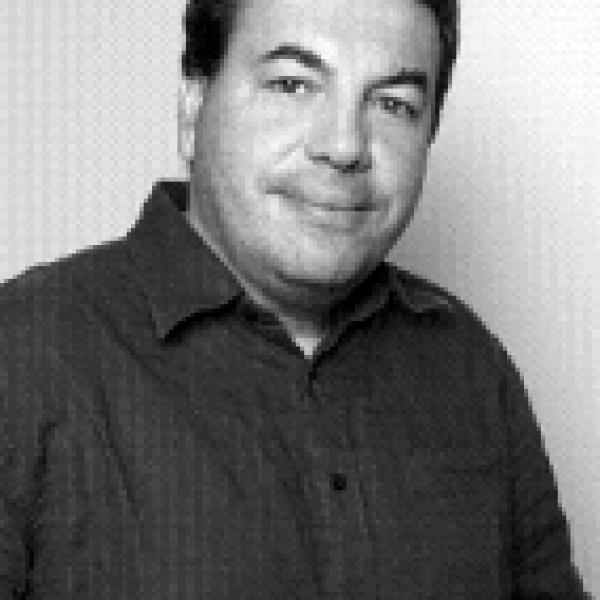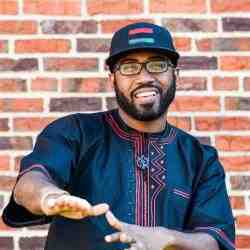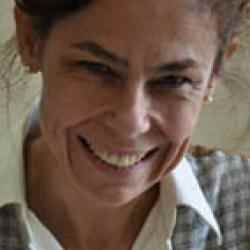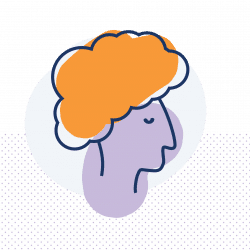Introduction
Guillaume Bapst is revolutionizing the way low income households access and purchase food. In an attempt to improve the food distribution system in France, where access is often slow and bureaucratic, choices are limited, and quality and nutritional value are low, Guillaume has built a network of solidarity grocery shops.
The New Idea
Guillaume Bapst has designed a new system for delivering food to the poor in France. Through his organization Association Nationale De Dévelopement des Epiceries Solidaires (ANDES) and a network of “solidarity grocers,” Guillaume is addressing the growing problem of hunger and malnutrition in France, as part of a broader objective to re-socialize people living below the poverty line, give them choices as consumers, and help them better manage their daily living. Through efficient central management, tight supply chains, and economies of scale, the grocery stores provide standard quality products to low income families while remaining largely sustainable. Most important, local stores stocked with a variety of groceries offer families choices and enjoyment in purchasing their food, giving consumers a sense of autonomy while encouraging a balanced diet. Central to Guillaume’s idea are affordability (10 to 30 percent of market price) and liberty to choose between products. This allows those in need to maintain their self respect and in some cases, helps them to reverse a dependency on state or charitable assistance. The idea to create paying solidarity grocery shops grew out of Guillaume’s reflection on the nature of “assistance” and in particular, on the observation that “a donation which cannot be reciprocated belittles the recipient especially when there is no possibility to give something in return” (Marcel Mauss, Essai sur le Don). The money saved using this model has to be reinvested into a project designed by both the social worker and the client. These projects include: children’s scholarships; car repairs, to commute to work; or toward reducing debt. This model also helps people to learn how to better manage their monthly incomes.Hunger is obviously the most painful effect of poverty, but because meals also involve sharing and congeniality, traditional meal distribution programs remove the warmth and comfort that shared meals should provide. Beyond being a better source of food, solidarity grocery stores have become a gathering space for a variety of other services for rehabilitation and integration. Special efforts are made to give clients a renewed interest in preparing food and in eating a healthy and balanced diet—nourishment becomes pleasurable and provides the occasion for social interaction. In addition, other activities are organized, from cooking classes to workshops for parents and children that help reinforce family ties. Thus, Guillaume’s idea has social as well as economic benefits and is a powerful platform for re-integration into society.
The Problem
Within the European Union, 12 percent of households live in poverty with monthly incomes ranging from 260€ to 550€. In France in 2003, between 3.7 million and 7.1 million individuals—depending on the threshold used—were considered “poor”. Poverty reaches beyond the unemployed, as many people with jobs live in households with incomes of less than 60 percent of the nation’s average. According to the National Institute of Statistics and Economic Studies, in 2003 75 percent of the 1.3 million workers in France classified as poor received less than 534€ per month for their families.Ernst Engel’s economic law shows that as households’ incomes increase, the proportion of income devoted to food decreases; so socio-economic groups may be characterized according to their food consumption expenses. Those living in extreme poverty spend nearly all their income on food as a matter of survival. There are numerous structures in France which supply food aid in the form of pre-prepared self-service meals, or care packages. Yet the quality of such food is often poor: a recent ANDES study has shown that the health situation of families that rely solely on food aid is far worse than the national average (with problems including, malnourishment, obesity and high blood pressure). Often this food is donated when it is nearing or has reached its expiration date. Originally created to address emergency situations and not to meet all the nutritional needs of its beneficiaries, food aid has become in many cases the only source of nourishment for the destitute. On average, food aid is received for 25 months, and the variety of the food depends entirely on what is available and distributed during that period. In spite of their efforts to conform to the recommendations of the Nutrition Health Program by offering diversified meals or food boxes, current distribution structures face strong supply constraints effecting variety and quality. While lack of nutritional quality is a major concern, the inability of low income families to choose what they eat should not be overlooked. As basic consumption is an expression of free choice, being deprived of choice is another form of exclusion. Rather than contributing to the stigmatization of the poor by giving “handouts,” a more effective system would treat people as clients with choices. This system would have implications beyond simple nourishment: it could help to lift individuals out of their desperation, improve their self image and change society’s prejudices and begin to integrate them within society.
The Strategy
Created in April 2000, the role of ANDES is to develop a new model for a solidarity grocery store that can be reproduced and adapted to different regions. While each shop is unique, they are all managed centrally and professionally and are built around the core value of respect for the autonomy of the clients they serve. Since one of the main problems for these groceries is competitive pricing, Guillaume decided to create a centralized logistics and purchasing center that will help to ensure a constant supply of goods at low prices without sacrificing quality. By buying in bulk, Guillaume takes advantage of the best prices and lowest tariffs and contributes to surplus public funds at the local level. This logistics platform is about to be set up in Angers, a strategic location in France, where the local government welcomes the new jobs Guillaume’s project will create. The local government has agreed to provide Guillaume a free venue for operations. However, having a centralized place to distribute goods is not enough, and he is convinced that he must set up strategic partnerships with large brands. These partnerships will allow them to benefit from the best prices and in some cases, receive goods for free (Guillaume is using the French tax framework to show them how they can deduct 60 percent of the value of their products from their taxes). To date, he has partnered with Nestle, Unilever, Ferrero, Poulets de Loué and other companies. His objective is to bring the strongest companies and brands to his side to cover the basic needs of his clients. He also plans to broaden the range of products they provide, such as housing furniture and appliances. On many occasions, when people had nothing in their apartments, they were ashamed to invite anyone to their home.Guillaume is working to get large national distributors as partners in his own distribution chain. Because they have a wide presence and a huge power of negotiation, they would be strong allies in helping him scale up his program. By positioning ANDES as a partner that will bring thousands into their stores, rather than a competitor, Guillaume was able to recently sign an agreement with Carrefour—a large step forward for ANDES’ national development. The solidarity groceries are tailored to individuals excluded from the usual consumption market due to a low income. ANDES gives individuals that lack income to shop in traditional grocery stores with the choice to buy the food they want without having sacrifice quality. Being able to make consumer decisions and participate in monetary exchange restores the buyer’s dignity and economic independence. Access to the groceries is not permanent, but depends on the project the “client” has designed with social workers and the grocery manager. In most cases, the arrangement involves reducing client debt. This is essential, because it helps the client learn how to better manage his/her weekly or monthly budget, and teaches how to make the right choice between two products or begin saving for future expenses—like an education. In Guillaume’s grocery stores, with assistance, three out of four clients achieves the goal they designed. While the groceries are primarily to sell food, they provide more. Each grocery becomes a creative tool for developing social links to help buyers address other issues, such as health, housing, work, and education. In this way, the solidarity groceries are an avenue to social inclusion and to the restoration of economic citizenship. Guillaume believes it is essential for his customers to contribute to each store by participating in its management and helping to shape and lead the workshops held there. Some of the most successful client-led workshops have focused on cooking and teach people what and how to cook for a healthy and balanced diet. From time to time professional cooks are featured, but more often participants are eager to share their recipes and methods.Today, the ANDES network comprises approximately 60 groceries and serves hundreds of households; 24,000 people per year. With a budget of 160,000€ for 2006, the association is developing tools (software, training sessions and best practices sharing) to help manage stocks and is building strategic partnerships with the food industry to allow existing structures to help free them from recurring economic vulnerability. Guillaume is now at a turning point and his objective is to develop more and more groceries of this kind in France, beginning with the most economically devastated areas, like the over 700 Zones Urbaines Sensibles. He plans to enter remote areas in rural zones where more and more poor people are living. Guillaume is convinced that partnering with a company like Carrefour would make a huge difference in how quickly he can spread and how many people he can reach.
The Person
Guillaume had two role models while growing up: his godmother, who was a life-long social worker, and his uncle, a successful business entrepreneur. It is no surprise that he became convinced of the importance of linking the economic and social worlds—worlds that often seem opposed. Guillaume worked in a number of positions in the public sector as a young man, including immigration and housing management. It was here that he recognized how much strain food purchase can put on a family’s budget, and the sacrifices this can mean in terms of health, education or housing. In 1999, Guillaume realized that one way to help families struggling to pay their rent would be to help them save on their food budget, and set up a solidarity grocery to provide better quality food to low income families. In answer to the publicity that followed, the Secretary of State for Social Economy asked him to study how his project could be replicated. At this point, he decided to resume his studies (urban development and social economy) to formalize the development of a union of solidarity groceries and begin to replicate across the country.Guillaume was entrepreneurial from a young age. An avid horseman, he created a riding club at the age of 22 to pass on his passion to children. Tracked down by a local chamber of commerce as the young creator of a dynamic company, he later hosted a radio broadcast on entrepreneurship and trained young people to launch their own business.He is married with four children.




